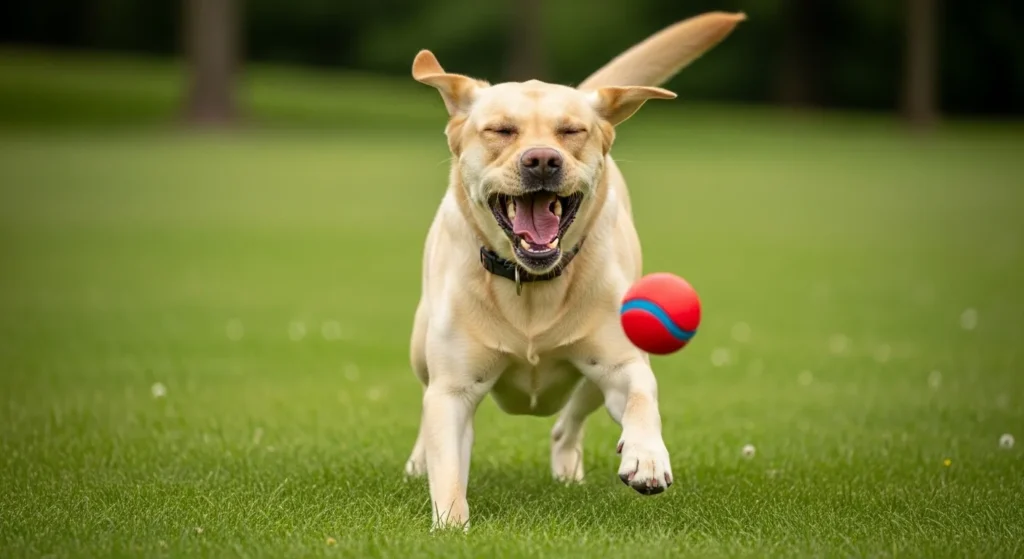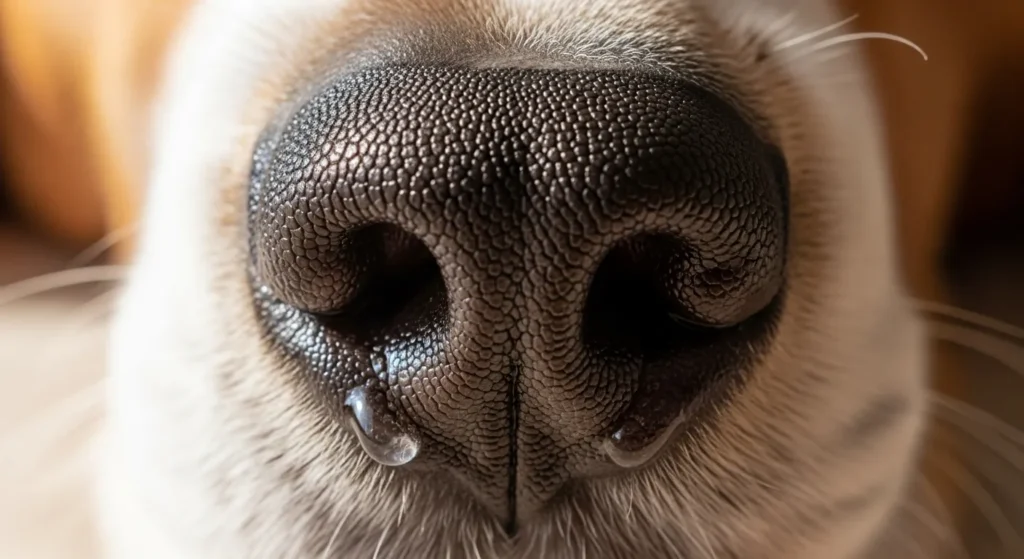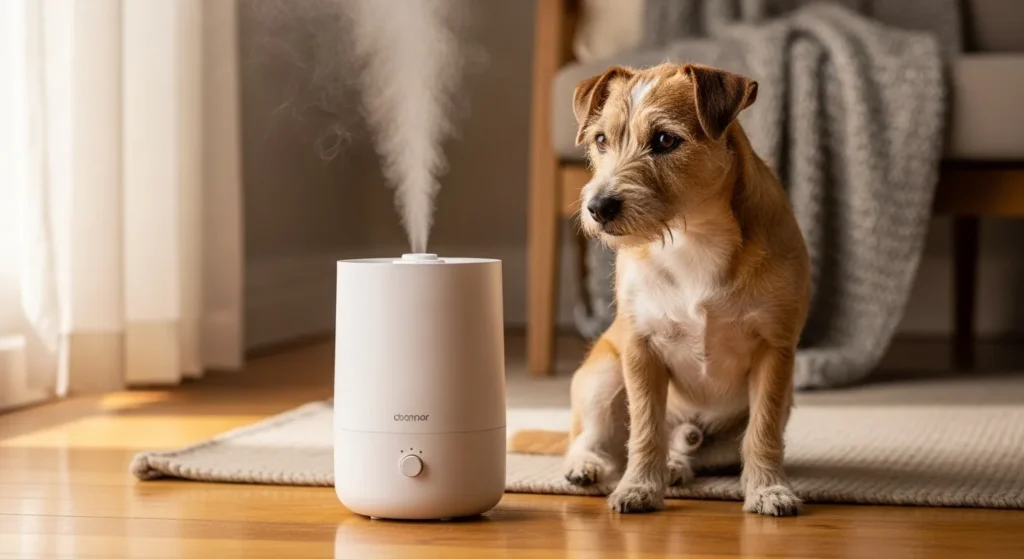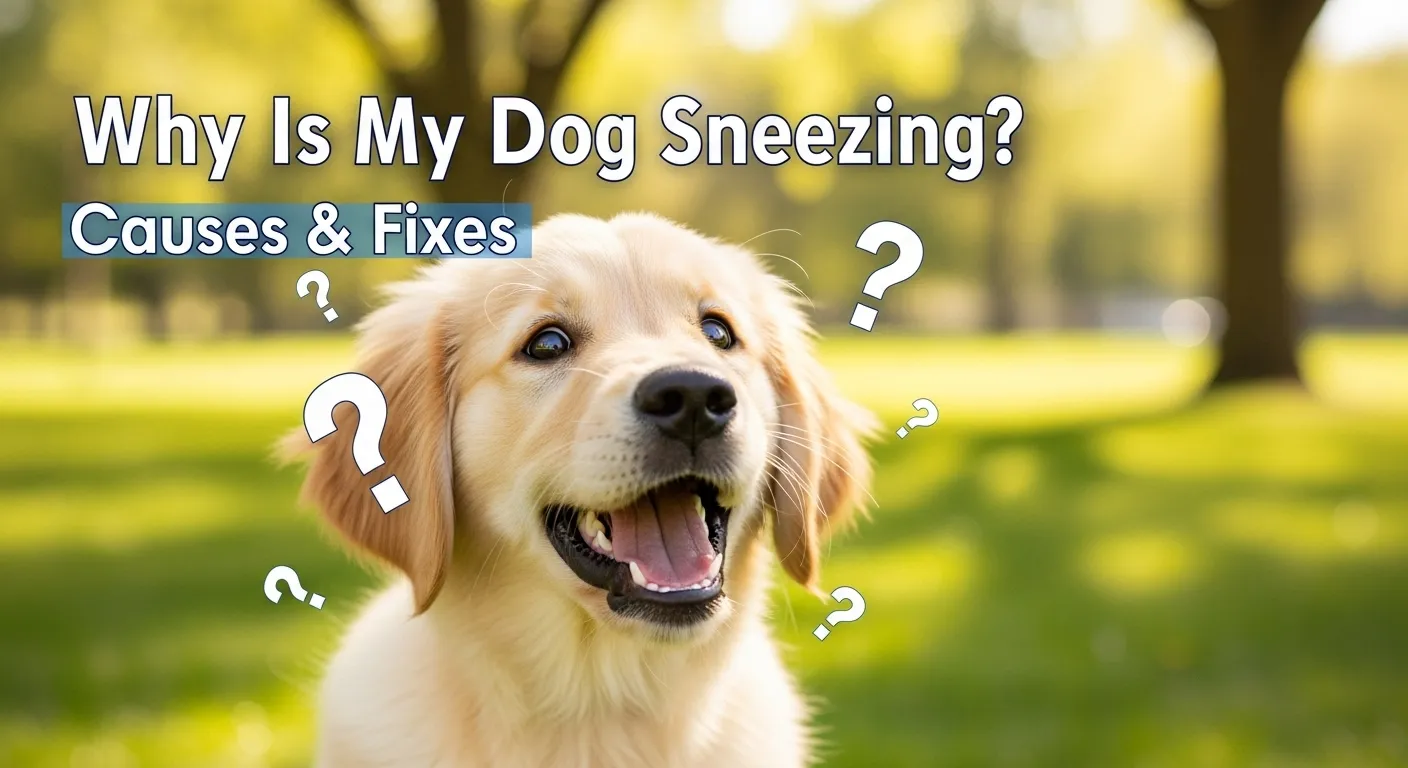Dogs sneeze now and then. It clears their nose. But if your dog sneezes a lot, you may wonder what’s going on. This guide covers the main reasons. It also tells you when to call a vet. Use our pet symptom checker to track other signs.
Normal Reasons Dogs Sneeze
Some sneezes mean nothing bad. They happen during fun times.
Play Sneezing
Dogs sneeze to show they feel happy. It often starts when they play. You might see it during fetch or with another dog. The sneeze signals “this is just fun.” No other signs come with it. If your dog does this, watch for a quick stop. It usually lasts seconds.
Reverse Sneezing
This looks different. Your dog pulls air in fast. It makes a snorting sound. The throat gets irritated. Things like excitement or a collar pull can start it. Small dogs do it more. Episodes last under a minute. Stay calm. Gently rub their throat. It helps most times.

Medical Causes of Dog Sneezing
Sneezing can point to health issues. Look for patterns. Does it happen after walks? Or with a runny nose?
Irritants in the Air
Dust or pollen sets off many sneezes. Smoke from a fire or strong smells from cleaners do too. Dogs have sharp noses. These bother them fast. Check your home. Open windows let pollen in. Vacuum often to cut dust.
Allergies
Dogs get allergies like people. Pollen or food can cause it. Sneezing comes with itchy skin or watery eyes. Food allergies are rarer for sneezes. They hit the stomach more. Test new foods slowly. Switch proteins if needed. Talk to a vet for tests. For more on allergies, see our post on why is my dog shaking.
Something Stuck in the Nose
Grass seeds or dirt can lodge in there. Dogs sniff everything. This leads to hard sneezes. One side of the nose may run. Pawing at the face happens too. It needs quick help. Vets remove it under light sleep.
Infections
Bugs or germs cause nasal infections. Viral ones spread at dog parks. Bacterial ones make thick yellow discharge. Fungal ones come from soil. Sneezing pairs with coughs. Fever or low energy shows up. Puppies catch these easy. Keep vaccines current.
Dental Problems
Bad teeth link to sneezes. Roots sit near the nose. An abscess drains up there. Bad breath or trouble eating comes first. Check your dog’s mouth. Brush teeth daily. See a vet for cleanings. Learn more in our common dog owner mistakes post.
Nasal Mites or Growths
Mites are tiny bugs in the nose. They itch a lot. Discharge turns bloody. Rare in clean homes. Growths or tumors hit older dogs. Sneezing worsens over time. One nostril bleeds. These need scans.

When to Take Your Dog to the Vet
Not all sneezes need a trip. But watch close. Call if sneezing lasts days. Or if new signs show.
- Thick or colored discharge from the nose
- Blood in sneezes or nosebleeds
- Coughing, wheezing, or hard breathing
- Face swelling or pawing at the nose
- No appetite, tiredness, or fever
- Sneezes only from one side
Go right away for breathing trouble. Vets check with exams or X-rays. They fix the root cause. For pain relief ideas, read what can I give my dog for pain.
Home Ways to Help a Sneezing Dog
Try these first for mild cases. They ease irritation.
- Run a cool mist humidifier at night. It moistens dry air.
- Sit in a steamy bathroom. The shower helps clear passages.
- Wipe the nose with a warm damp cloth. Use soft touches.
- Cut allergens. Wash bedding weekly. Use air filters.
- Add probiotics to food. They boost gut health and immunity.
Skip human meds. They harm dogs. Always ask a vet first.

How to Prevent Sneezing Problems
Keep your dog healthy. Simple steps work.
- Walk in clean areas. Avoid dusty fields.
- Bathe after outdoor time. Rinse pollen off.
- Feed quality food. Check ingredients with our pet food safety checker.
- Schedule check-ups. Catch issues early.
- For new dogs, try our pet breed finder quiz to pick low-allergy types.
Sneezing often ties to user questions like “Why does my dog sneeze blood?” or “Is reverse sneezing dangerous?” Blood means vet time. Reverse sneezing passes quick. For more queries, search “dog sneezing blood” or “dog allergies sneezing.”
This covers most cases. Your dog counts on you. Act fast if worried.
